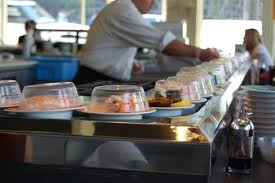Vibrio is one of the nastier foodborne pathogens, one of the reasons why I don’t go near raw oysters (the other being that I just don’t like them). In 2014, Washington oyster producers dealt with the fallout from over 70 Vibrio cases linked to their products. The illnesses caused beds to be closed for two months and now, according to AP, the WA State Department of Health is proposing rules that would close the harvest areas proactively.
Local shellfish growers support the recommendations, saying the changes would better protect public health without creating hardships for the local industry.
“I think that’s a more reasonable way of approaching the problem,” Blau Oyster Co. owner Paul Blau said.
Following the seasonlong closure last year, Blau received a state exemption that allowed his company to sell shucked oysters with warning labels. It helped, but the small business still felt an impact.
“Not being able to sell live oysters in the shells . that’s kind of our high-priced product that we sell that time of year,” Blau said.
Under current regulation, inland areas like Samish Bay are subject to summerlong closures if four illnesses are traced back.
“That means a lot of closures are taking place in August and September, when we know most illness occurs in July and August,” state Office of Shellfish and Water Protection spokeswoman Laura Johnson said.
The revision would set water temperature thresholds that would result in shorter harvest times or full closures when exceeded.
“We’re excited about the change. It will be a positive one for public health . and we don’t think we’ll be closed any more than we have historically. We will just be closed proactively,” Taylor Shellfish Farms spokesman Bill Dewey said.
For inland areas, harvest closures would occur at 66 degrees and last until 24 hours after the temperature drops.
Oyster harvesters would also be required to cool shellfish to 50 degrees or less within five hours, as well as report harvest quantity and water temperature to the state agency.
“We know the growth of vibrio is so tied to temperature, it only makes sense that you’re going to be required to record temperatures when you harvest,” Dewey said.
To date, the Department of Health has tracked reports of vibrio-related illness, but not the quantity of oysters sold. The new data-filing requirement will enable the agency to look at the ratio of sickness to the number of oysters consumed.
“Everybody has been frustrated by our historic way of managing vibrio in the state . What we’ve done historically is monitor for illnesses, and then when we get those illnesses we shut it down,” Dewey said. “That’s a really bad way to manage public health, but we didn’t have another tool to do it. I think we’ve come up with a solution in this new rule.”




 foodborne illness that were reported by parties not affiliated with Sushi Land.
foodborne illness that were reported by parties not affiliated with Sushi Land. .jpg) decree entered by U.S. District Judge Lonny R. Suko of the Eastern District of Washington, on April 3.
decree entered by U.S. District Judge Lonny R. Suko of the Eastern District of Washington, on April 3..jpg)
 Vancouver attended the event.
Vancouver attended the event.